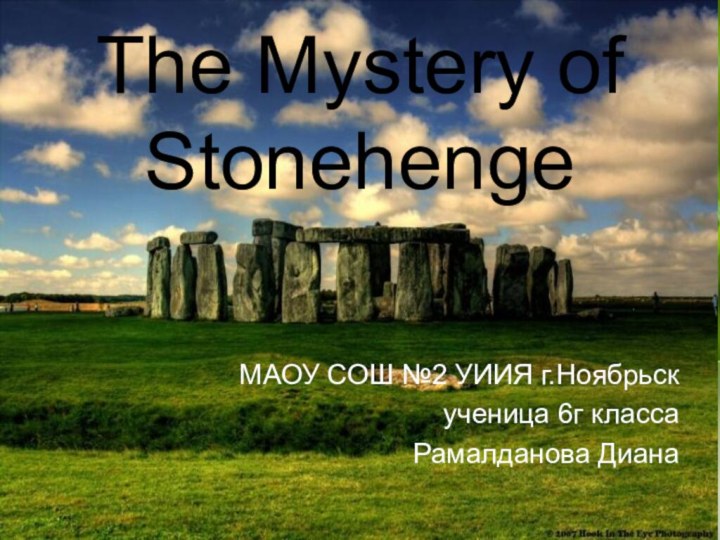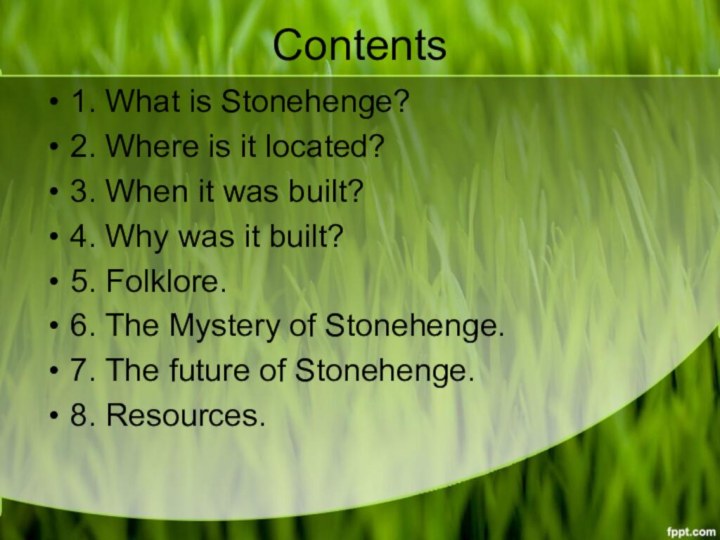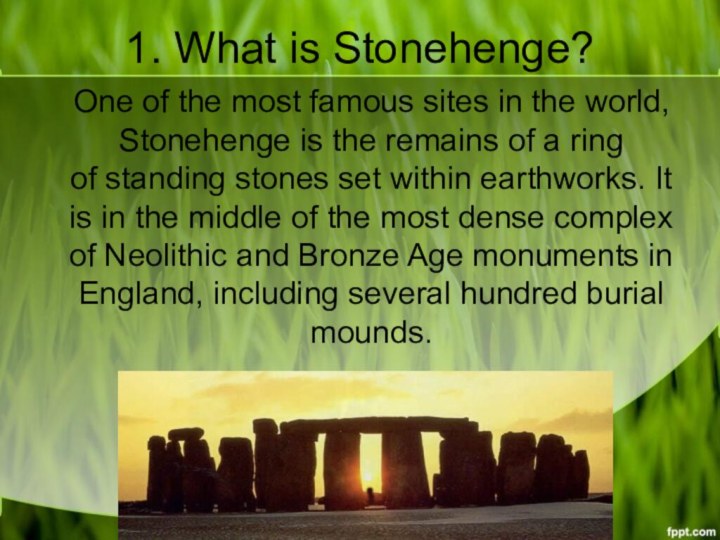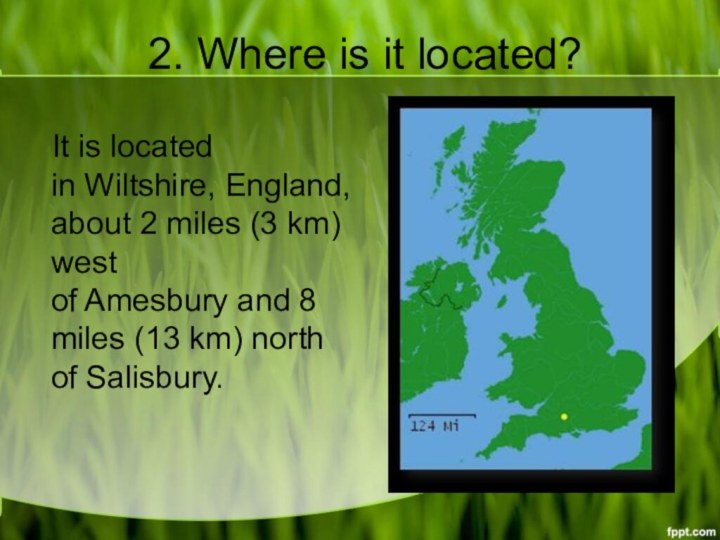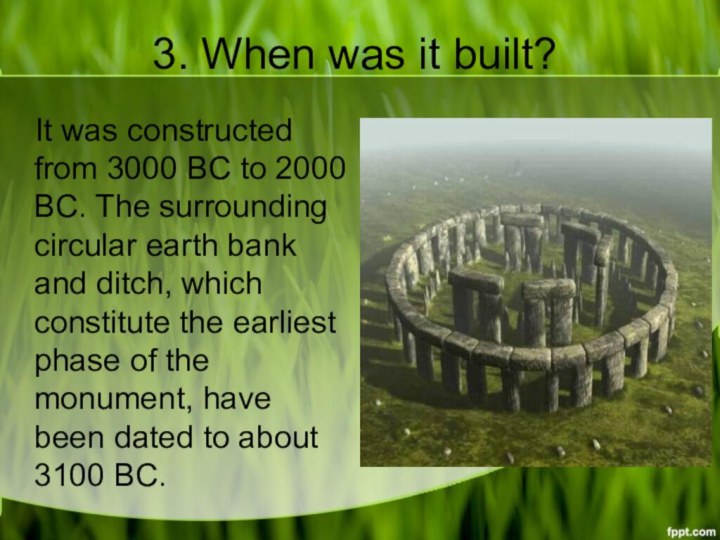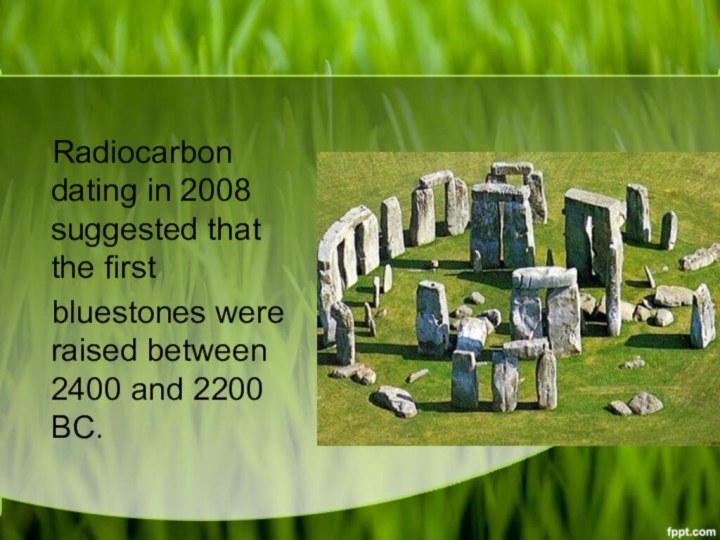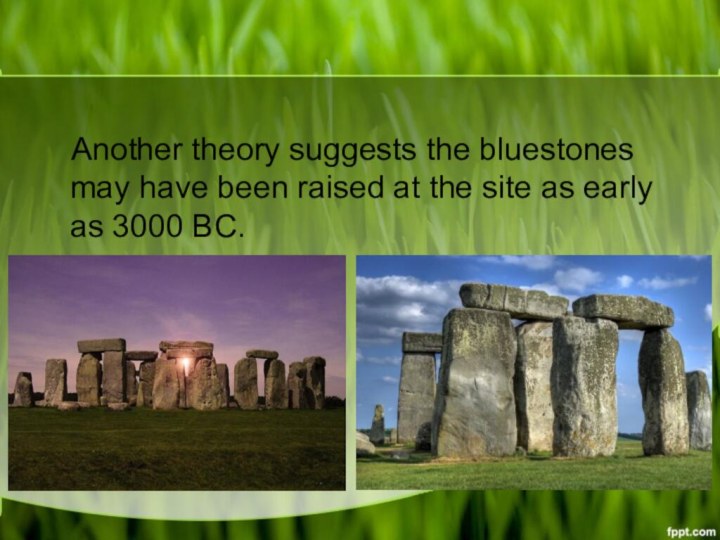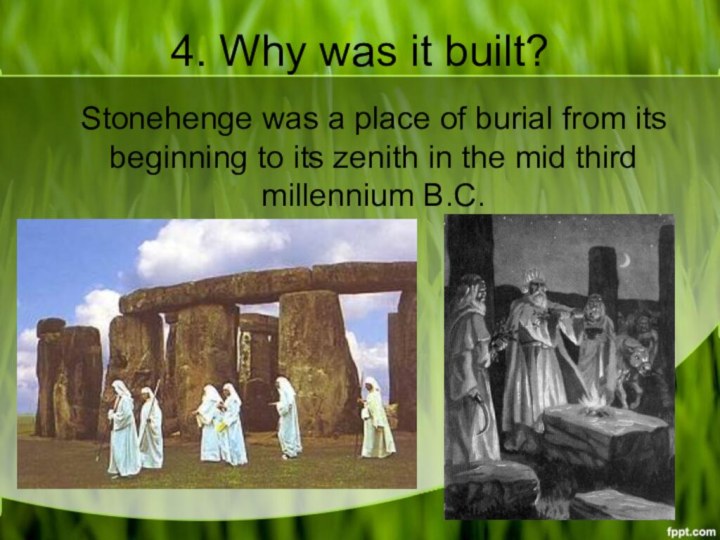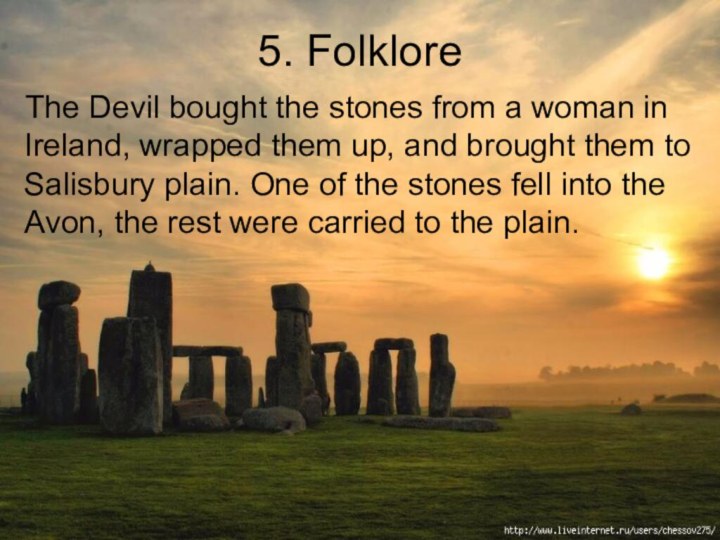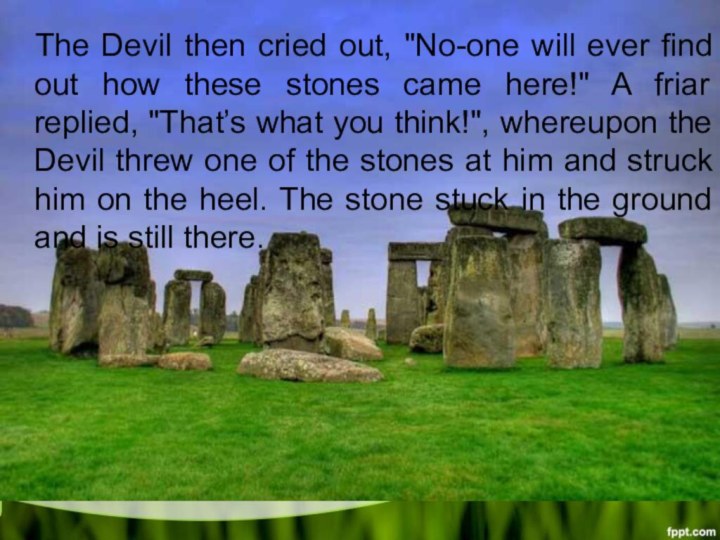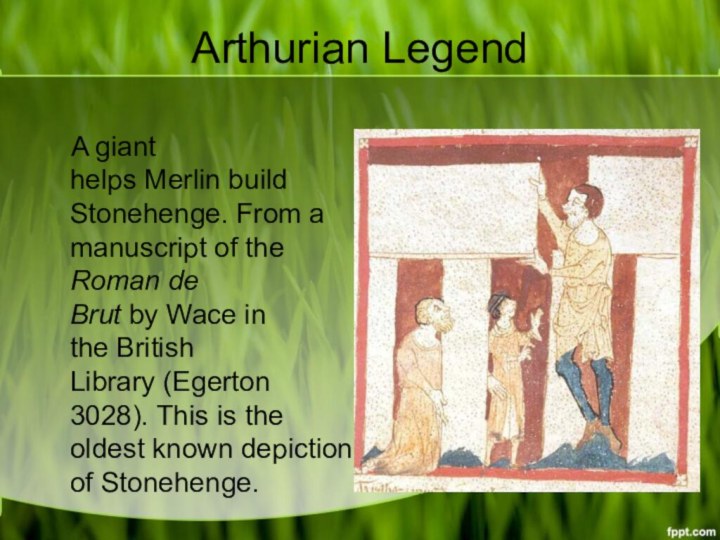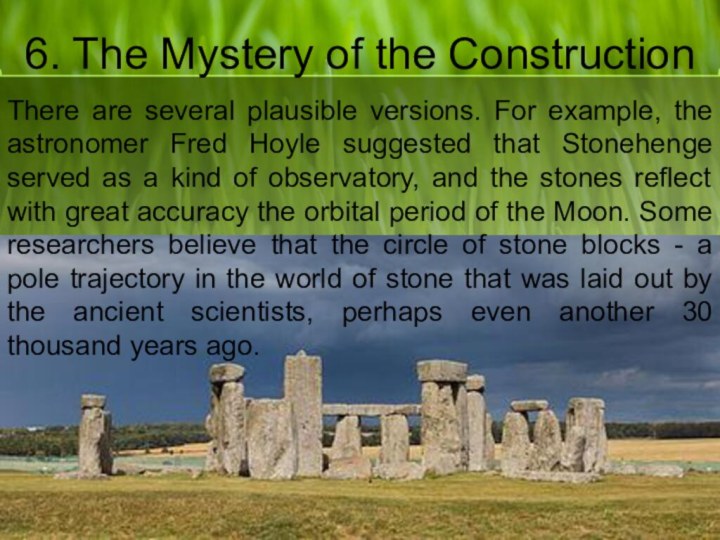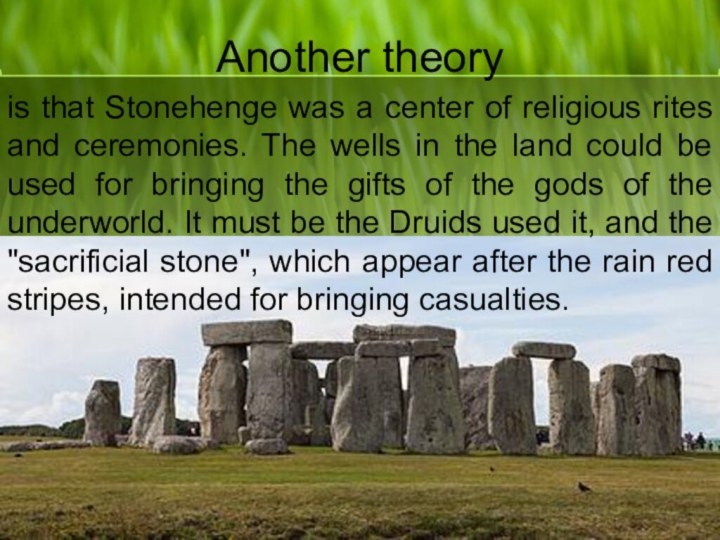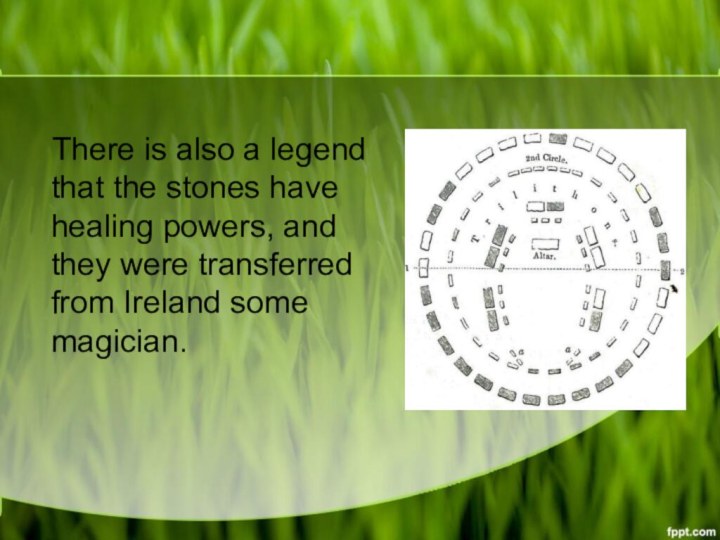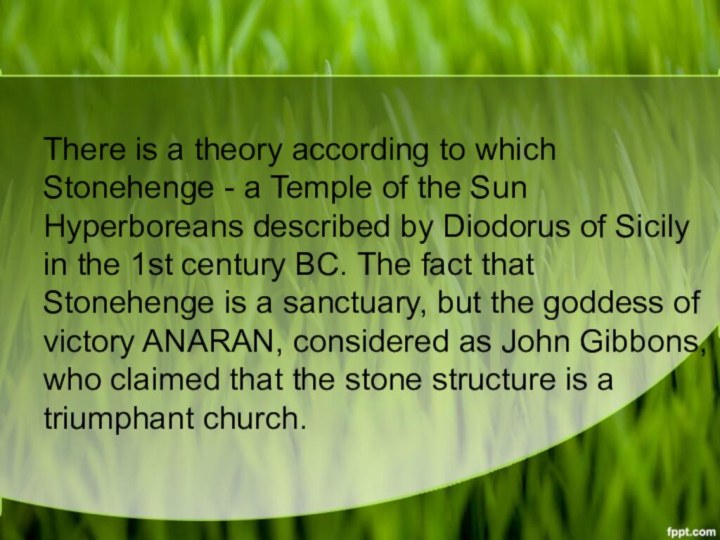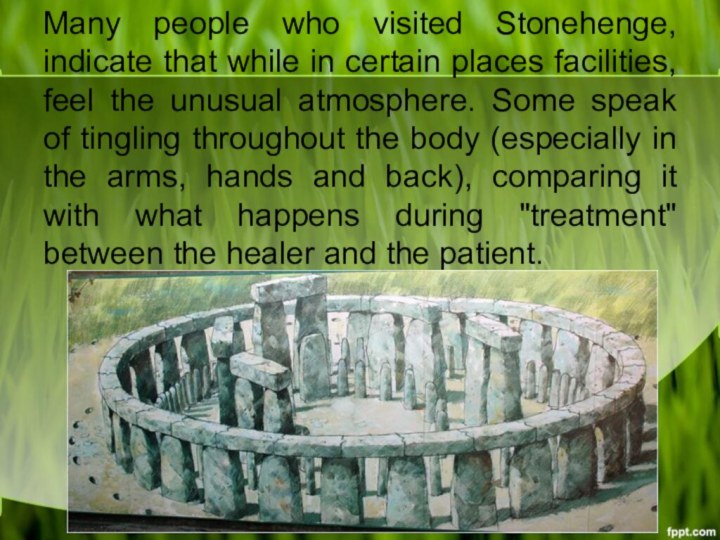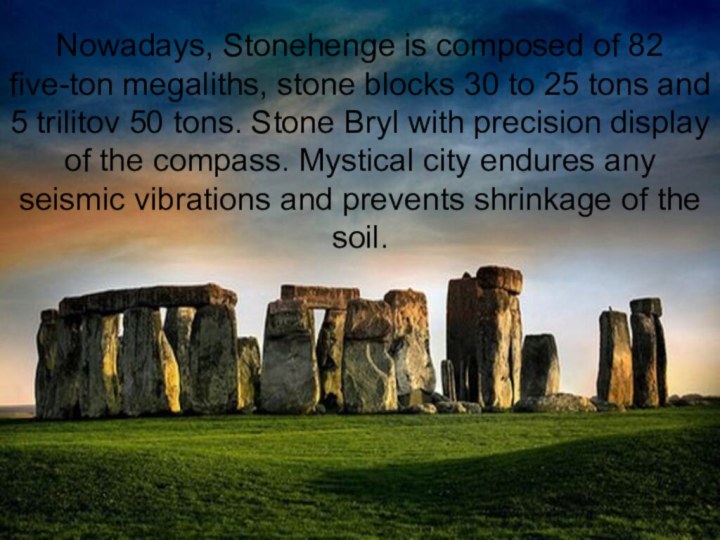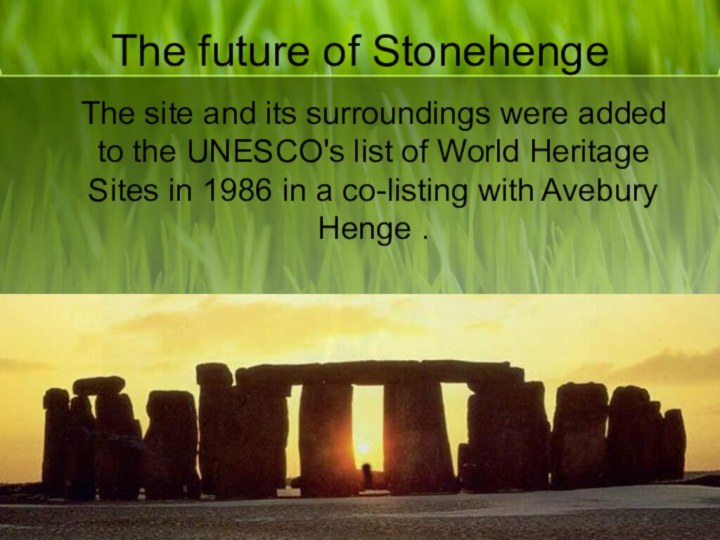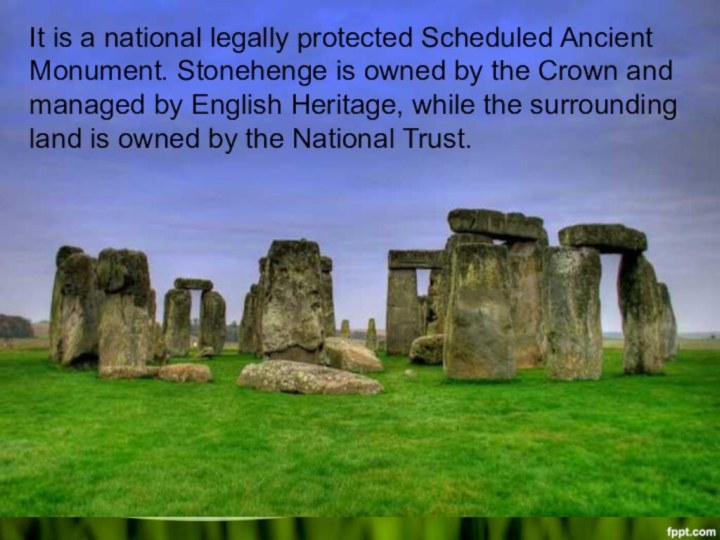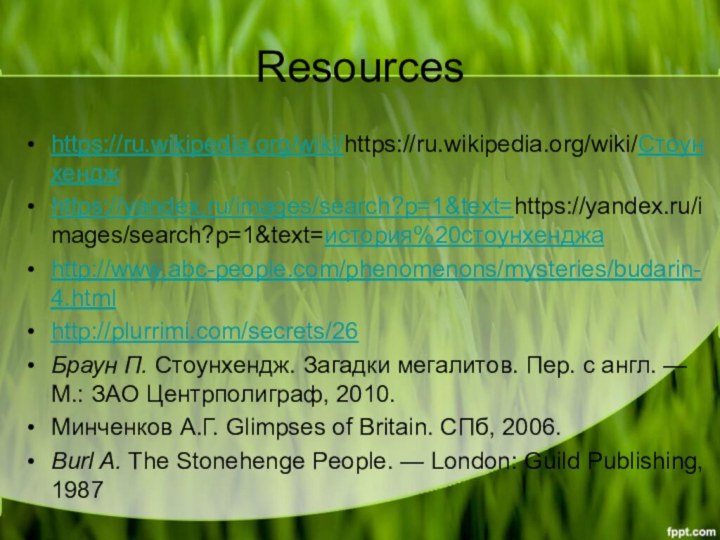Слайд 2
Contents
1. What is Stonehenge?
2. Where is it located?
3.
When it was built?
4. Why was it built?
5. Folklore.
6. The Mystery of Stonehenge.
7. The future of Stonehenge.
8. Resources.
Слайд 3
1. What is Stonehenge?
One of the most famous
sites in the world, Stonehenge is the remains of
a ring of standing stones set within earthworks. It is in the middle of the most dense complex of Neolithic and Bronze Age monuments in England, including several hundred burial mounds.
Слайд 4
2. Where is it located?
It is located in Wiltshire, England,
about 2 miles (3 km) west of Amesbury and 8 miles (13 km)
north of Salisbury.
Слайд 5
3. When was it built?
It was constructed from
3000 BC to 2000 BC. The surrounding circular earth
bank and ditch, which constitute the earliest phase of the monument, have been dated to about 3100 BC.
Слайд 6
Radiocarbon dating in 2008 suggested that the first
bluestones were
raised between 2400 and 2200 BC.
Слайд 7
Another theory suggests the bluestones may have been
raised at the site as early as 3000 BC.
Слайд 8
4. Why was it built?
Stonehenge was a place
of burial from its beginning to its zenith in
the mid third millennium B.C.
Слайд 9
The cremation burial dating to Stonehenge's sarsen stones phase is
likely just one of many from this later period
of the monument's use and demonstrates that it was still very much a domain of the dead.
Слайд 10
5. Folklore
The Devil bought the stones from a woman in
Ireland, wrapped them up, and brought them to Salisbury
plain. One of the stones fell into the Avon, the rest were carried to the plain.
Слайд 11
The Devil then cried out, "No-one will ever
find out how these stones came here!" A friar
replied, "That’s what you think!", whereupon the Devil threw one of the stones at him and struck him on the heel. The stone stuck in the ground and is still there.
Слайд 12
Arthurian Legend
A giant helps Merlin build Stonehenge. From a manuscript
of the Roman de Brut by Wace in the British Library (Egerton 3028). This
is the oldest known depiction of Stonehenge.
Слайд 13
6. The Mystery of the Construction
There are several
plausible versions. For example, the astronomer Fred Hoyle suggested
that Stonehenge served as a kind of observatory, and the stones reflect with great accuracy the orbital period of the Moon. Some researchers believe that the circle of stone blocks - a pole trajectory in the world of stone that was laid out by the ancient scientists, perhaps even another 30 thousand years ago.
Слайд 14
Another theory
is that Stonehenge was a center
of religious rites and ceremonies. The wells in the
land could be used for bringing the gifts of the gods of the underworld. It must be the Druids used it, and the "sacrificial stone", which appear after the rain red stripes, intended for bringing casualties.
Слайд 15
There is also a legend that the stones
have healing powers, and they were transferred from Ireland
some magician.
Слайд 16
There is a theory according to which Stonehenge
- a Temple of the Sun Hyperboreans described by
Diodorus of Sicily in the 1st century BC. The fact that Stonehenge is a sanctuary, but the goddess of victory ANARAN, considered as John Gibbons, who claimed that the stone structure is a triumphant church.
Слайд 18
Many people who visited Stonehenge, indicate that while
in certain places facilities, feel the unusual atmosphere. Some
speak of tingling throughout the body (especially in the arms, hands and back), comparing it with what happens during "treatment" between the healer and the patient.
Слайд 19
Nowadays, Stonehenge is composed of 82 five-ton megaliths,
stone blocks 30 to 25 tons and 5 trilitov
50 tons. Stone Bryl with precision display of the compass. Mystical city endures any seismic vibrations and prevents shrinkage of the soil.
Слайд 20
The future of Stonehenge
The site and its surroundings were added
to the UNESCO's list of World Heritage Sites in 1986 in a
co-listing with Avebury Henge .
Слайд 21
It is a national legally protected Scheduled Ancient Monument.
Stonehenge is owned by the Crown and managed by English Heritage,
while the surrounding land is owned by the National Trust.
